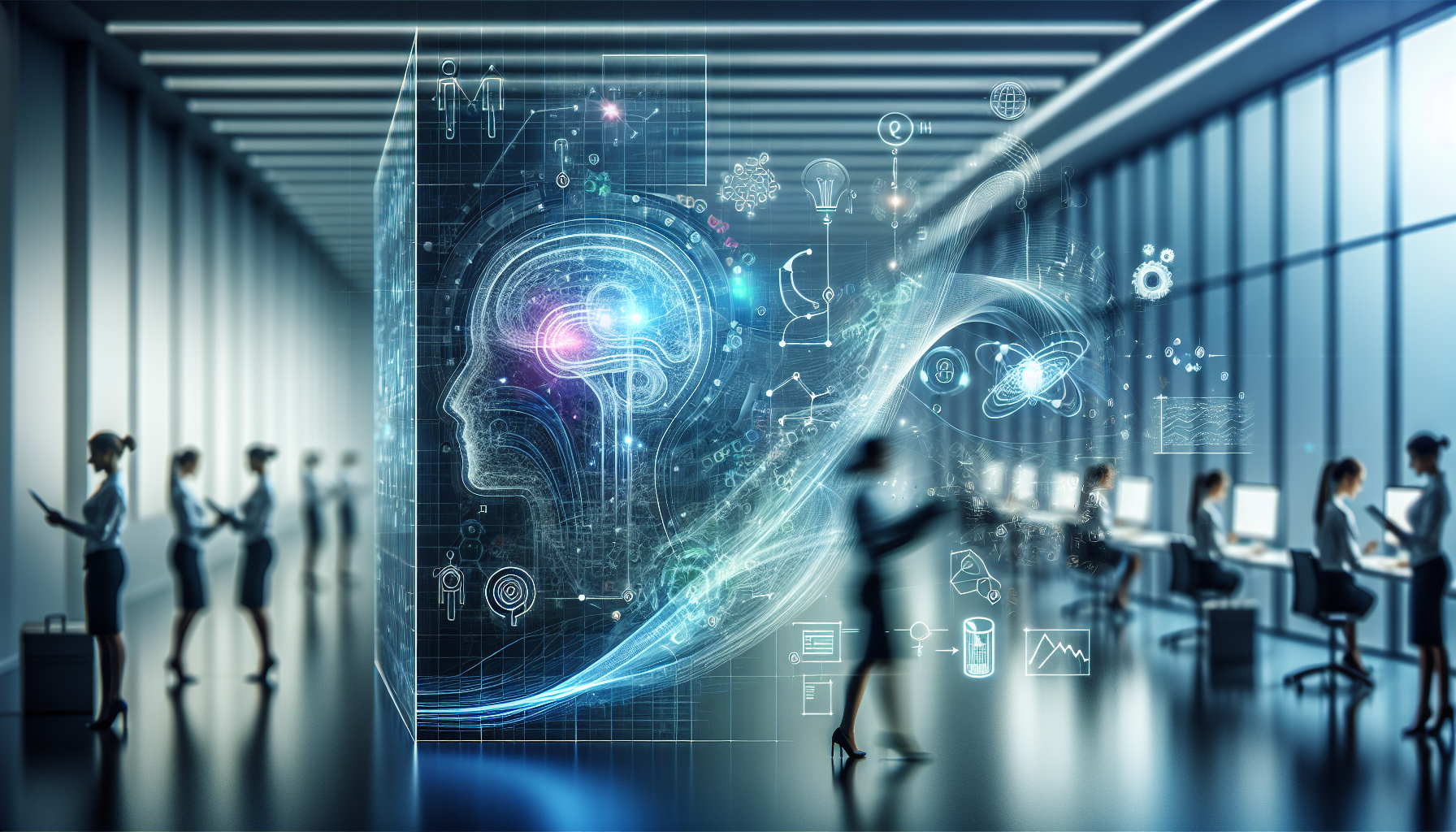
Quantum Computing and AI: When Einstein Meets HAL 9000 in the Ultimate Showdown
July 16, 2025
Ladies and gentlemen, gather around and witness the spectacle of the century: the union of quantum computing and artificial intelligence—a combo so promising it’s like pairing peanut butter with jelly, but with a lot more qubits and less bread. This dynamic duo is set to redefine the limits of computational power, and it promises to make our current tech look about as sophisticated as a potato battery.
Once upon a time, in a world where computers were the size of your living room and had less processing power than your smartphone, there existed a dream: to build machines that could think. Fast forward to today, and we've got AI models that can paint like Picasso, compose music like Beethoven, and even write articles like... well, maybe not like this one.
But hold your horses—or should we say, your Schrödinger's cats? Enter quantum computing, the enigmatic superhero of the tech world. While classical computers process information in bits (those trusty 0s and 1s), quantum computers use qubits, which can represent a zero, a one, or both at the same time, thanks to the mystical principles of superposition and entanglement. It's like having a computer that's not only multitasking but is doing so in multiple universes simultaneously. If that doesn’t make your brain do a double take, nothing will.
The history of quantum computing reads like a sci-fi novel written by someone who accidentally spilled coffee on their keyboard. It starts with the strange tale of quantum mechanics, where particles can be in two places at once, and ends (for now) with powerful quantum machines that promise to solve problems too complex for even the fastest classical computers.
Now, let's add artificial intelligence into the mix. AI has been around for a while, with early pioneers creating machines that played chess and solved math problems. However, the dream of creating an AI that could understand human jokes—like why chickens really cross roads—remains tantalizingly out of reach.
Enter the prospect of quantum-powered AI. Imagine an AI so advanced it could instantly analyze vast datasets, predict stock market trends with eerie accuracy, or even, dare we dream, finally figure out why my cat insists on sitting on my keyboard. Quantum computing's ability to process complex calculations at lightning speed could provide AI with the boost it needs to tackle problems that currently boggle our silicon brains.
But how did we get here? The journey of AI and quantum computing has been filled with twists and turns that would make even the most seasoned soap opera writer blush. We’ve seen AI models that claimed to be sentient (spoiler: they weren't), and quantum computers that promised to break all cryptographic codes (spoiler: they haven't... yet). But it’s this very unpredictable nature that makes the future so exciting—or terrifying, if you’re the kind who frets about robot overlords.
Historically, AI has been a bit like a teenager—full of potential, but occasionally unpredictable and prone to existential crises. Quantum computing, on the other hand, has been the mysterious genius, always slightly misunderstood and often speaking in riddles. Together, they promise to form a partnership that could revolutionize fields as diverse as medicine, finance, and even climate change.
Picture this: a quantum AI system that can model complex molecular interactions to design new drugs, potentially speeding up the development of life-saving treatments. Or an AI that can analyze climate data with unprecedented precision, helping us tackle environmental challenges before they become critical. The possibilities are as endless as the number of cat videos on the internet.
Of course, with great power comes great responsibility, and there are plenty of challenges to address. Quantum computers remain temperamental beasts, demanding conditions so fragile they make an orchid in winter look hardy. Plus, there's the question of ensuring that AI systems are used ethically, without, say, accidentally launching the world's nuclear arsenal.
So, what does the future hold for this dynamic duo? Will they lead us to a utopia where machines handle all the drudgery, giving us more time to binge-watch our favorite shows? Or will they open Pandora's box, leading to a world where we're constantly outwitted by our smart fridges? Only time will tell.
In the meantime, as these technologies evolve, perhaps the most important question we can ask is this: How do we ensure that AI and quantum computing work not just for us, but with us, creating a future that's as bright and promising as the sci-fi dreams that inspired them?


